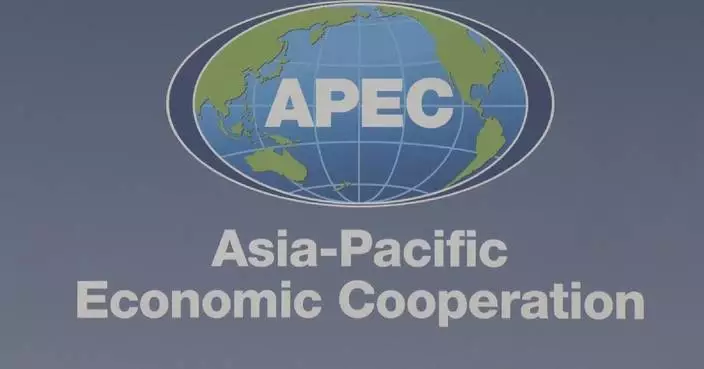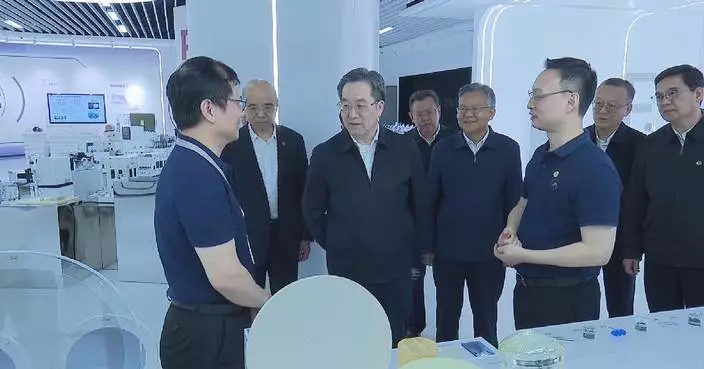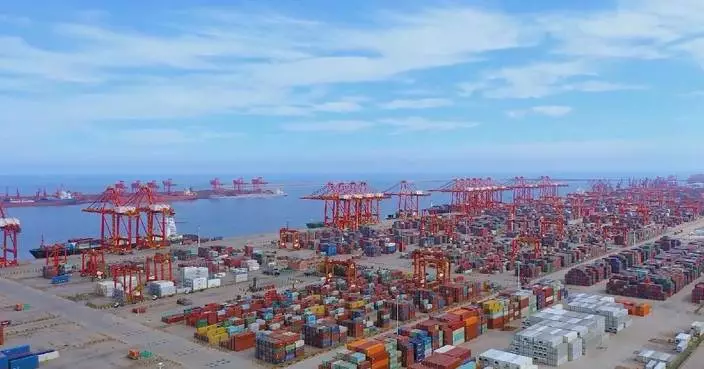Manufacturers in Chengdu, a major manufacturing hub in southwest China, are navigating the impact of U.S. tariffs by diversifying markets and accelerating innovation.
In early April this year, the U.S. government announced a significant increase in tariffs on Chinese imports. In response, China adjusted its tariffs on U.S. imports as well. The tension has brought challenges to trade and manufacturing companies in both countries.
Dashike Technology, a machine tool manufacturer, has reduced its reliance on the U.S. market from 40 percent to 20 percent after 80 percent of its U.S.-bound business was suspended due to the latest U.S. tariff policies. Meanwhile, strong demand from Europe and Southeast Asia has kept its production lines running at full capacity, according to its deputy general manager Ma Shibin.
The company is also expanding its European warehouse, building a new factory in South America, and establishing an innovation center in Chengdu.
According to Ma, their products are now exported to over 120 countries and regions, and it plans to attend two international trade fairs per month this year to explore new markets, aiming to maintain overall export stability.
"We are strengthening our engineering and research and development team to enhance our competitiveness. We are not afraid of market risks. By focusing on our core strengths, we can maintain long-term and sustainable competitiveness," said Ma.
The impact of U.S. tariffs has been felt in the furniture sector as well. Chengdu Xiaomei Smart Home, which exports over 90 percent of its products to the U.S., faced a sudden halt in business.
However, Chengdu's local authorities stepped in, identifying affected enterprises and providing targeted support. Furniture, food, and home goods were given priority access to domestic supermarkets and e-commerce platforms. Local malls offered free access to prime locations to showcase and sell sofas.
"Many domestic and international customers are contacting us these days. Major domestic construction contractors have recognized our products and we are now in follow-up discussions with them. Our confidence in the market has also been restored," said Zheng Xinwei, person in charge of the company.
Despite the challenges posed by U.S. tariffs, local businesses remain optimistic and eager to expand overseas as the local government is also actively supporting enterprises by addressing their concerns and helping them explore new international markets.
The Chengdu Economic and Information Technology Bureau is conducting a new round of surveys to understand the needs of affected companies.
More than 1,600 industrial enterprises have been surveyed, and over 700 issues have been identified. Customized policies are also being crafted for key industries to boost their international competitiveness and expand their market presence. "We have a dedicated work group with 348 members, including over 200 key entrepreneurs, where they can communicate directly with the city's top leadership for their demands in a timely manner. We are helping enterprises adjust their export regions to break into new markets and secure orders," said Zhao Chungan, director of the Chengdu Economic and Information Technology Bureau.

Chengdu's manufacturing sector expands horizons, adapts to tariff changes





















































